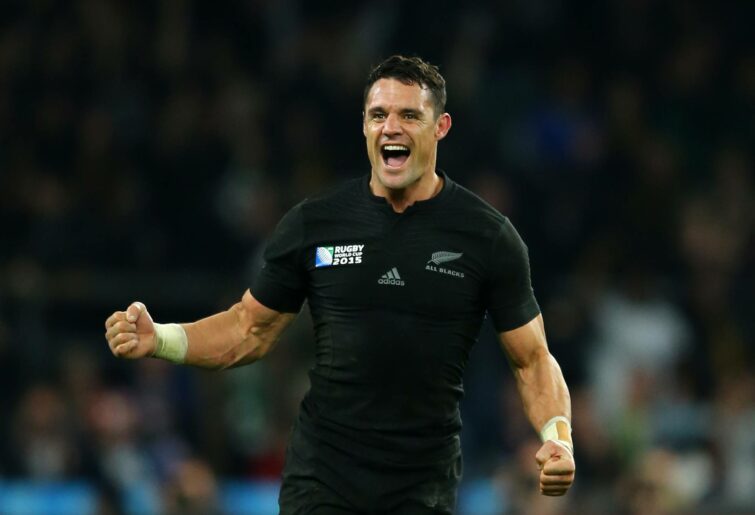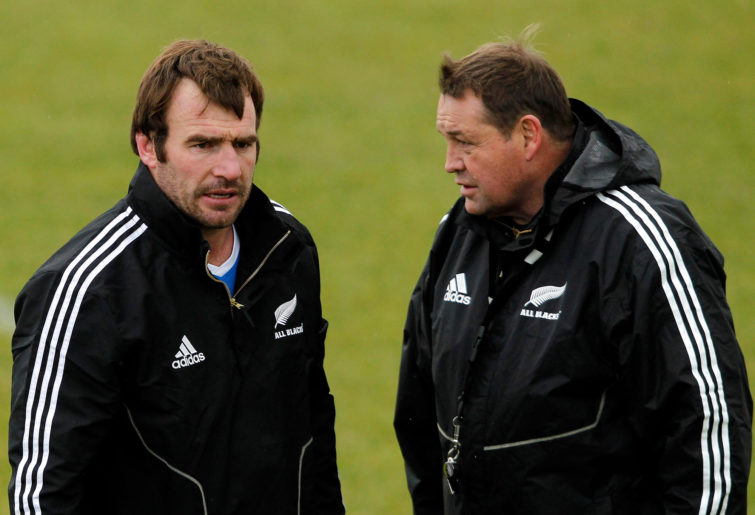The 1995 All Blacks fell short in our competition with the 2015 team, many acknowledging the 2015ers as being the greatest All Black team of all time.
A big call, surely there must have been a team as good if not better from throughout the glittering history of All Black teams?
I scanned back over the years relying on my fading memory to find a team to equal if not better the 2015 All Blacks. There were good teams and some very average ones as well.
But none that would compete with the 2015 team, until… I recalled a team that I would have been too young to follow, or if I did my passion for rugby must have started very early!
The 1967 All Blacks selected for the tour of Britain, France and Canada were a legendary side, who even former coach Steve Hansen believes is the All Blacks’ greatest ever.
I would never say the 1967 team would beat the 2015 version, but were they a greater, more influential, side? Greater being a description to convey how they compared to other teams, their reputations as individuals and how they were revered by supporters.
This team played 17 matches on tour, winning 16 and a 3-3 draw against East Wales.
The local side were unlucky to only draw with a potential penalty try turned down after Fergie McCormick obstructed one of the Welsh. Barry John also narrowly missed a drop goal near the death. This record made them the first undefeated northern tour side since the 1924-24 Invincibles.
The tour was a replacement one after the proposed tour of South Africa was abandoned over apartheid issues with Maori members being selected. Imagine the fun social media would have had with that one!
The 30-man squad was captained by Brian Lochore, coached by the legendary Fred Allen and managed by Charlie Saxton.
The Irish leg of the tour was cancelled over the outbreak of foot-and-mouth disease, so Tests were won against England, Wales, France, Scotland and the Barbarians.
Therefore, they missed the chance to take the first ever Grand Slam. Fergie McCormick was named as the squad’s only fullback and notables not to play a Test were Graham Thorne and Mac Herewini.
The magnificent loose forwards were a feature of the side with Kel Tremain, Ian Kirkpatrick, Graham Williams, Lochore and the Black Panther himself, Waka Nathan selected. You will cringe if you watch the haka performed back then, one improvement to be thankful for!

Were the 2015 All Blacks the best ever? (Photo by Richard Heathcote – World Rugby via Getty Images/World Rugby via Getty Images)
Society went through great changes in the 60s, especially in music, clothes, attitudes, arts and sport, of which I was too young to totally enjoy.
The new freedom was felt in rugby with the 1967 team moving on from the staid, dull 10-man rugby of the past to a more attacking style. This is what I meant by an influential team with rugby to benefit in years to come. A freer style with the aim to get the ball out to the backs. We seem to have regressed slightly with the boring rolling maul now being used as an attacking weapon.
If you wondered where the “no dickheads” policy came from, I would surmise that Brian Lochore, Fred Allen and Saxton were influential in this requirement.
Lochore probably brought it back in later years. The team was a great group of individuals with many going on to bigger and brighter challenges.
What was required on the rugby field was used in everyday life with three players knighted, four elected to Parliament and others succeeding in teaching, business, farming, management and leadership, all inspired by the visionary Allen and Saxton.

Do you agree with Steve Hansen? (Photo by Martin Hunter/Getty Images)
“These guys went back to their farms on Monday, so they weren’t separated from New Zealand society. The young players coming up today are living life in something of a bubble. In 1967 what’s striking is what an extraordinarily diverse range of individuals they were.” Chris Laidlaw with Radio NZ.
This was very much the era of the amateur as Laidlaw remembers: “The pay was so trifling it was immediately spent on booze! Some people came back with the princely sum of $10 or $15 after all that time.”
This team toured 55 years ago so it will be difficult to compare the players individually with the 2015 team. Times have changed with players’ physiques, diets, training, livelihoods and coaching all undergoing significant changes in the professional era.
Laidlaw says there is much to admire about the current generation of players. “Now what you see is a higher level of skill, more personal skill, a whole lot more bulk, more speed and you see a certain sort of automaton quality to the way in which they’re obliged to play.”
I can’t resist seeing how the two teams compare!
These are the players used for the internationals on the 1967 tour:
Fullback: Fergie McCormack
Wing: Malcolm Dick
Centre: Bill Davis
Second Five: Ian McRae
Wings: Bill Birtwistle, Anthony Steel
First five: Earle Kirton
Halfbacks: Chris Laidlaw, Sid Going
Number Eight: Brian Lochore
Flankers: Kel Tremain, Ian Kirkpatrick, Waka Nathan
Flanker: Graham Williams
Lock: Colin Meads
Lock: Sam Strahan
Props: Edward Hazlett, Ken Gray
Hooker: Bruce McLeod
Props: Jazz Muller, Alister Hopkinson
The 2015 team was Ben Smith, Nehe Milner-Skudder, Conrad Smith, Ma’a Nonu, Julian Savea, Dan Carter, Aaron Smith, Kieran Read, Richie McCaw, Jerome Kaino, Sam Whitelock, Brodie Retallick, Owen Franks, Dane Coles, Joe Moody.
Clearcut choices in my view from 67 would be Colin Meads and aahhh…
Debatable ones, Chris Laidlaw and Sid Going would attract votes, Brian Lochore, any of the flankers were impressive from 67, but you would still go with Read, McCaw and Kaino, Ken Gray and Muller at prop and that is about it.
Both sides were champion teams with champion players from their eras. But the 1967 team did something that 2015 did not do and that was to influence the style of rugby played.
If the 67 side had not changed from the dour rugby would future sides have played more open rugby? Maybe it was just inevitable.
If a match was played between the two teams, I would suggest the 2015 side would win quite handsomely, but then the rugby they played was probably influenced by the 1967 team so let’s just call this a draw?
The two best teams in All Black rugby?






























































































